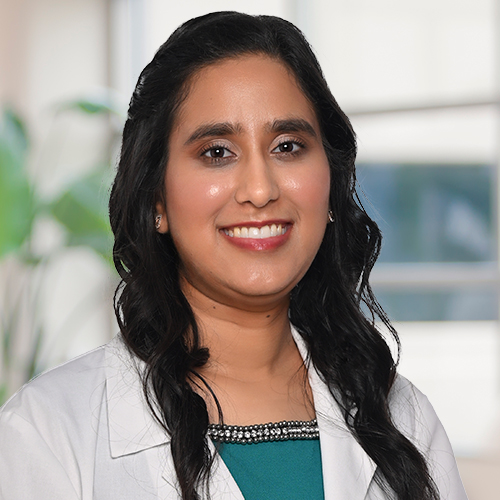Don’t Have a Primary Care Provider? Let’s Get You on the Right Path
October 14, 2025If you don’t have a primary care provider (PCP), you’re not alone. But, you could be missing out on one of the most important relationships for your long-term health. A PCP is more than just someone to call when you’re sick. They’re your partner in prevention, early detection, chronic condition management, and overall wellness.
Whether you’re new to the area, haven’t needed a doctor recently, or just aren’t sure where to start, now is the perfect time to take that first step. Here, Liz Deck, advanced practice provider with Riverside Medical Group-Internal Medicine Bourbonnais, shares why having a trusted primary care provider matters—and how to find one that fits your needs.
Role of the Primary Care Provider
A PCP plays a crucial role in maintaining overall health by serving as the first point of contact for medical care. They conduct annual exams, order lab work, manage immunizations, and provide referrals to specialists when needed. PCPs also address non-emergency questions through tools like MyChart, handle more urgent concerns by coordinating timely care, and support mental health needs by prescribing medications or referring patients to counseling or psychiatry.
“We help guide the patient. We know patients are often on the internet looking up their own information. We absolutely want to understand what the patient has Googled about their healthcare and what their interpretation is of that information,” states Deck. “If we need to correct that, we're able to do so before anything goes awry.”
The Trust Factor
Building a strong, trusting relationship between a patient and their PCP is essential. This connection ensures patients feel confident they’re receiving accurate information and comprehensive care. While immediate care centers (e.g. urgent care facilities) are effective for addressing singular, urgent issues—such as a cough or minor infection—a PCP offers continuity, reassurance, and long-term support. They guide patients through all stages of life, focusing on overall health and well-being rather than just isolated concerns.
“I've had many patients over fifteen years. It's great to establish that relationship, to be there to answer questions, to see them on a routine basis. Many patients have longer-term needs related to chronic conditions. So, we need to be there for our patients on a regular basis so those chronic conditions do not get out of hand,” notes Deck. “We find a lot of satisfaction in our work, and we think the patient does also.”
Addressing Chronic Conditions with the Latest Medical Advancements
As mentioned, PCPs play a vital role in managing chronic conditions like diabetes, high blood pressure, asthma, depression, and anxiety by staying up to date with medical advancements and treatment guidelines through ongoing education. Many PCPs develop expertise in specific areas—such as diabetes management—allowing them to offer specialized care and patient education.
“My specialty is diabetes, where I have two certifications in diabetes management and education,” shares Deck. “To get that patient where they need to be requires a lot of continuing education, so we are in the know about all the latest advancements.”
Primary care providers also consider factors like medication effectiveness, patient response, and affordability when creating treatment plans. Providers monitor patients closely, often following up within weeks to ensure treatments are working well and to make necessary adjustments, coordinating care with specialists as needed.
Understanding the Different Types of PCPs
In primary care, patients may see different types of providers, each with specific training and roles. An MD (Doctor of Medicine) and a DO (Doctor of Osteopathic Medicine) are both physicians who complete medical school and residency training, with DOs receiving additional instruction in a holistic approach and osteopathic manipulative treatment. Both are fully qualified to diagnose, treat, and perform surgeries.
Nurse practitioners (NPs) and physician assistants (PAs) are advanced practice providers who typically hold both bachelor's and master's degrees. NPs, like Deck, may also have a doctorate degree (DNP) and are trained to manage patients across the lifespan.
PAs and NPs can independently manage many aspects of patient care and often serve as primary care providers, though they cannot perform surgeries. Both roles continue to gain expanded responsibilities, such as signing home care orders—a change accelerated by the pandemic. While physicians oversee care and perform surgeries, NPs and PAs play a key role in delivering comprehensive, accessible primary care.
In choosing a PCP, Deck encourages people to find a provider they trust and get along with well—no matter their “title.” She also says that location of the PCP’s office is also a key consideration.
“Certainly look for somebody local, or where you can drive to facilities if we have to refer you to something like physical therapy or diagnostic imaging,” advises Deck. “Ultimately, it’s all about finding you a provider you get like. One who can come up with a plan for your care, covering all the bases of your medical needs and answering all your questions. Particularly one who takes the time to listen to you so they have a clear understanding of your needs.”
Visit myrhc.net/accepting new to find a Riverside Primary Care Provider.



